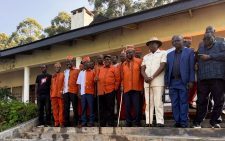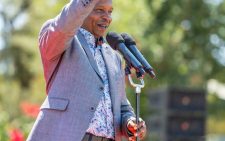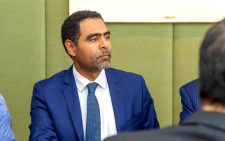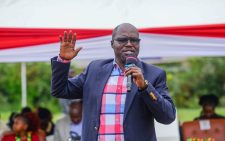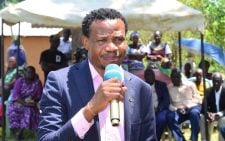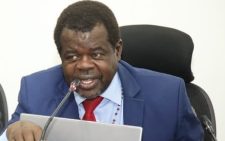Anti-Bill politicians put up spirited fight
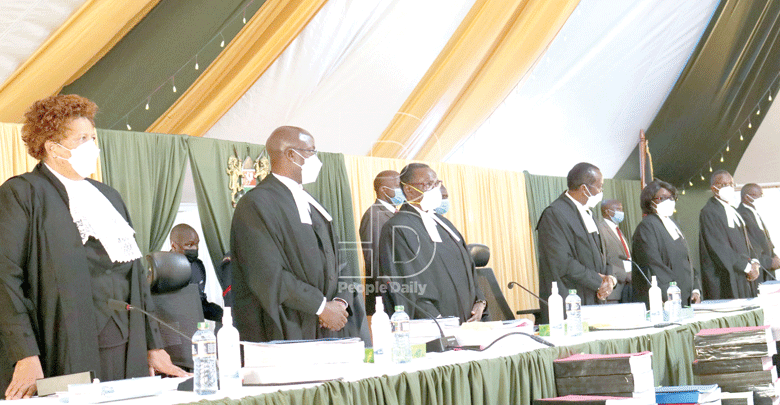
Bernice Mbugua @BerniceMuhindi
Politicians opposed to President Uhuru Kenyatta have ganged up to fight the Building Bridges Initiative (BBI) in the high-octane hearings at the Court of Appeal.
While former Senate Deputy Speaker Kithure Kindiki represents the Third Way Alliance, former Justice minister Martha Karua, represents one of the parties admitted as friends of the court in the High Court.
Karua yesterday protested attempts by judges to limit the time for submission scheduled for today.
“We were friends of the court in the High Court but we were dragged here, as respondents by the appellants; some of whom are questioning our presence here. We have filed as respondents and we expect to be given time to argue our case,” she told the judges
Karua has been among the leading voices opposed to BBI under the Linda Katiba lobby which includes economist David Ndii; who successfully secured High Court orders declaring the initiative “unconstitutional, null and void.”
Presidential project
Kindiki yesterday claimed the President had no right to initiate a popular initiative.
He argued that the President should have relinquished his position if he intended to push the popular initiative; like what he did in 2014 when heading to The Hague for the criminal case.
“In 2014, the President downed the tools of power publicly, appointing his deputy as President so that he could attend to his ICC case, terming it as a personal matter,” he said.
The senator was among politicians allied to Deputy President William Ruto who were removed from their House leadership positions due to their opposition to the BBI.
Kindiki argued that the push for the BBI Bill, was not a popular initiative as claimed by the proponents, but a presidential project and that the BBI task force held its meetings using State machinery.
“We submit that the President of the Republic of Kenya, has no right to initiate a popular initiative because this avenue of popular initiative is reserved for private citizens including civil society and isn’t available to State officers ,” he argued
The Tharaka Nithi Senator also argued that there was little public participation in the process, citing the case of the Siaya County Assembly; which passed the BBI bill within 24 hours, after receiving it.
“I don’t know whether they did public participation at midnight or at 3am. The BBI proponents marshalled millions of signatures in seven days like Simon Makonde,” noted Kindiki
Kindiki argued that the people were the creator of the constitution and thus it cannot be superior to them.
Lawyer Muthomi Thiankolu representing Morara Omoke, pleaded with the court not “to drop the sword” while dealing with the BBI Bill equating it to a hydra monster.
The lawyer projected a presentation to the judges, showing a hydra monster, which he equated to the BBI Bill saying we should think how the future presidents are likely to treat the Constitution, if the decision of the High Court was reversed.
The hydra monster could kill from the long distance, the challenge was in killing it, as it had seven heads and with every time its head was cut off, it grew two more,” he told the Judges.
Dropped the sword
Thiankolu’s illustration through a power point presentation , took the court down the history of when Kenya was being colonised and how the founding fathers fought for independence.
“Some of our forefathers rose to protest. They include Mekatili wa Menza, Koitalel arap Samoei, Dedan Kimathi and others.
This monster ate our freedom, dignity, rights and we were tenants in our land and basically it ate every fabric of our social , political and economic entity,” he told court.
He added: “We sent our best brains to London between 1960 and 1963 and their singular task was to design a sword to deploy it whenever the Constitution was threatened with a breach,” he stated.
Thiankolu argued that the people who wanted the “hydra, wanted to make the sword ineffective and thus were hitting it against a granite rock so that the sword would be blunt 38 times through 38 hyper amendments.”
“Kenyans kept running to the Judiciary. Kamau Kuria ran to the Judiciary saying the monster had swallowed his right to travel and he was told by the court, the passport belong to the President,” the lawyer said.
“Maina Wa Kinyatti ran to the Judiciary to defend his academic freedom and instead of deploying the sword, the Judiciary dropped the sword. They kept running to the Judiciary and the various judges without mentioning their names invariably trampled and dropped the sword.”
Thiankolu argued that before 2010 Constitution, there were a few judges who even though the sword had been made blunt through hyper amendments, they had the presence of mind and courage to deploy it.
“One of them was Chief Justice Madan sitting in that bench called Githunguri vs Republic, with Justice Gicheru and late Aganyanya and they slew that monster even using the blunt sword,” he added.
The lawyer told the judges that Kenyans were watching their decisions and not for its intellectual depth, but whether they will “drop the word.”
He told the judges that the Judiciary had dropped the sword before, when there were Nyayo torture chambers, detentions without trial and sedation laws.
“The whole thing began in small bits which is an amendment. I beseech you my lord and your court and I pray you will have the courage, fidelity to Oath of Office and will deploy the sword and slay the monster called BBI,” he said.
Lawyer Gilbert Nyamweya who also represents Omoke argued that it was a fact that the electoral body does not have complete composition and it should not be defensive about it as it does not constitute itself.
“The vacancies arose four years ago and none of the appellants asked why we do not have a quorum at the elections agency,” he said.
Caroline Jerono who represents Thirdway Aliance also argued that IEBC should have carried out voter education before the referendum.
